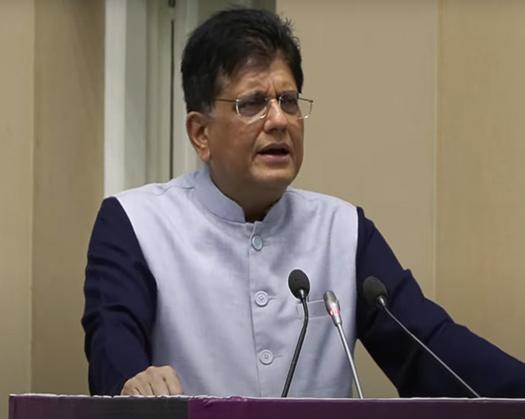The Initial Public Offering (IPO) market in India has experienced a notable resurgence in recent years, with a multitude of companies across various sectors successfully raising substantial capital through public listings.
This resurgence has attracted considerable attention from investors, industry experts, and market analysts worldwide.
While the secondary market in India continues to flourish, with benchmark indices achieving new record highs on a daily basis, the primary markets are also witnessing a surge in activity.
The primary markets, previously dominated by institutional investors, are now experiencing a significant increase in participation from retail investors. This shift is attributed to the potential for higher returns and the accessibility of financial markets.
In September alone, 47 companies entered the secondary market, securing a total of Rs 16,152 crore, as reported by media outlets.
The momentum is unmistakable, with the IPO market in India tripling in the initial eight months of 2024.
During this period, a total of 227 IPOs were conducted, raising a combined sum of USD 12.2 billion—nearly three times the USD 4.3 billion raised in the same period of the previous year, according to GlobalData, a London-based company specializing in data analytics and consulting.
India has emerged as a leading player in the Asia-Pacific (APAC) region, with 575 IPO listings in the initial eight months of 2024, securing a total of USD 23.7 billion—a 15.6 percent increase compared to the same period in 2023, as reported by GlobalData.
Furthermore, a wave of IPOs is anticipated in the Indian stock market, with 13 companies submitting preliminary filings to the Securities and Exchange Board of India (SEBI) on a single day.
These 13 companies are projected to collectively raise at least Rs 8,000 crore, as indicated in their draft filings on September 30.
To date, 62 companies have successfully raised approximately Rs 64,000 crore through mainboard IPOs in 2024, marking a 29 percent increase compared to the Rs 49,436 crore raised by 57 companies in the entirety of 2023, as reported by various sources.
This surge is not merely a reflection of the robustness of India’s stock markets but also signifies the confidence investors have in the country’s long-term economic prospects.
As India positions itself as a burgeoning global economic powerhouse, the Initial Public Offering (IPO) market assumes a pivotal role in facilitating the infusion of capital into sectors with high potential for growth.
The Underlying Factors of the IPO Surge:
A multitude of interrelated elements has precipitated the recent surge in Initial Public Offerings (IPOs) within India.
These elements are indicative of the shifting economic landscape, an increasing interest among investors, and a regulatory framework that has facilitated businesses in accessing the capital markets with greater efficiency.
The Economic Revival Post-Pandemic: A key catalyst for the surge in IPOs is the post-pandemic resurgence of the Indian economy.
Following the severe downturn witnessed in 2020, India has experienced a robust recovery, bolstered by government stimulus packages, extensive vaccination campaigns, and economic reforms.
As the economic landscape stabilized, enterprises that had postponed their IPO endeavors in the face of the pandemic's uncertainty have begun to re-engage with the market.
For numerous companies, the prospect of going public emerged as an appealing strategy to secure capital, diminish debt, and finance expansion initiatives.
The Enhanced Economic Environment and Investor Confidence: The strengthening economic backdrop has significantly enhanced investor confidence, creating an ideal environment for Initial Public Offerings (IPOs) to thrive.
The Rise of Tech Startups in the IPO Market: A notable aspect of India's IPO surge has been the increasing number of technology startups, particularly those in the startup ecosystem, choosing to pursue Initial Public Offerings.
Leading digital enterprises such as Zomato, Nykaa, Paytm, and PolicyBazaar have garnered considerable attention with their public offerings, drawing substantial interest from investors both within and beyond India's borders.
These entities epitomize India's burgeoning digital economy, propelled by technological advancements, innovation, and an expanding digital consumer demographic.
The advent of the pandemic has further hastened the adoption of digital services, rendering these technology-driven startups even more attractive to investors.
The achievements of certain initial public offerings (IPOs) have catalyzed a wave of interest among other technology companies, prompting them to consider public listings as a strategy to enhance value and expand their operations.
The involvement of retail investors has emerged as a pivotal element in the surge of India's IPO market.
This is facilitated by the ease of access to online trading platforms and mobile applications, which has led to a surge in retail investor engagement with the stock market.
The prevalence of smartphones, affordable internet access, and the increasing popularity of investment platforms have contributed to the democratization of financial markets.
Moreover, as traditional savings vehicles such as fixed deposits and bonds have yielded diminishing returns in recent years due to low-interest rates, Indian retail investors have increasingly shifted their focus towards equities as a strategy for wealth accumulation.
In particular, initial public offerings (IPOs) have captured the interest of retail investors due to the promise of rapid returns and the opportunity to own shares in prominent companies.
The surge in India's Initial Public Offerings (IPOs) is significantly bolstered by the prevailing global liquidity conditions.
Major central banks, particularly those in developed nations, have adopted expansionary fiscal policies to mitigate the economic repercussions of the pandemic.
This policy shift has led to an excess of liquidity, prompting institutional investors to seek high-growth prospects in emerging economies, including India.
Foreign Institutional Investors (FIIs) have demonstrated considerable interest in India's IPO market, driven by the nation's long-term economic prospects and its favorable demographic profile.
India's emerging middle class, expanding consumer base, and technologically advanced population render it an attractive investment destination.
Consequently, FIIs have contributed substantial capital to IPOs, thereby increasing the demand for new offerings.
Furthermore, regulatory support and reforms have been instrumental in nurturing India's IPO market.
The Securities and Exchange Board of India (SEBI), the country's market regulator, has spearheaded these efforts.
SEBI has introduced a series of reforms designed to streamline the IPO process, enhance transparency, and improve investor protection.
These reforms encompass the simplification of the regulatory filing process, the reduction of the IPO approval timeline, and the improvement of disclosure standards.
Moreover, SEBI has fortified mechanisms for investor protection, ensuring that retail investors have access to accurate information and are adequately protected against potential risks.
Enhancements in Regulatory Framework: These enhancements in the regulatory framework have significantly bolstered investor confidence, rendering Initial Public Offerings (IPOs) a more appealing investment avenue.
Government's Initiatives towards Privatization: The Government of India's relentless efforts towards the privatization of public sector enterprises (PSEs) have played a pivotal role in the surge witnessed in IPOs.
The government has been vigorously pursuing divestment in state-owned entities with the aim of alleviating its fiscal obligations and achieving its divestment targets.
A particularly notable event in India's IPO landscape was the highly anticipated listing of the Life Insurance Corporation of India (LIC), the nation's largest insurer.
This push towards privatization has not only facilitated the introduction of prominent public listings but has also garnered considerable interest from international investors, thereby enhancing the momentum of the IPO market.
Impact of the IPO Surge:
The recent surge in IPOs has had a profound impact on India's capital markets, businesses, and investors.
The increased volume of listings has not only expanded market participation but has also raised concerns regarding valuations, sustainability, and the long-term prospects for both companies and investors.
The influx of new IPOs has widened the breadth of the Indian stock market, offering investors a more diverse selection of investment opportunities.
With companies from various sectors, including technology, healthcare, financial services, and consumer goods, listing on the exchanges, investors now have access to a more comprehensive portfolio of industries.
This strategy of diversification serves to mitigate risks within the market and enhance the overall stability of the stock market ecosystem.
The surge in Initial Public Offerings (IPOs) has generated considerable wealth for promoters, early-stage investors, and retail investors who have successfully invested in high-growth enterprises.
A number of IPOs have yielded significant returns following their listing, thereby increasing investor enthusiasm and encouraging further participation in subsequent offerings.
Despite the overall success observed in the IPO market, there has been a growing concern regarding potential overvaluation.
Certain companies, especially those in the technology sector, have achieved public listing at valuations that are significantly higher than their earnings.
In many instances, these companies have not yet demonstrated consistent profitability, leading to speculation regarding their long-term viability.
As a consequence, there has been a noticeable decline in the stock prices of some newly listed companies post-IPO, indicating investor apprehension regarding the sustainability of the elevated valuations.
This situation has underscored the need for enhanced due diligence and a more cautious approach, especially in the midst of market exuberance.
Looking ahead to the future prospects of India's IPO boom:
The future appears promising for India's IPO market, characterized by a strong pipeline of companies set to embark on their public listing journeys in the near future.
The dynamic nature of India's rapidly expanding economy, robust capital markets, and the evolving regulatory landscape create an environment that is conducive to the flourishing of more IPOs.
The future direction of the Initial Public Offering (IPO) market is contingent upon a variety of factors, including global economic conditions, trends in interest rates, and prevailing market sentiment.
Although there is currently a high level of investor enthusiasm, the market's momentum could be adversely affected by macroeconomic shocks or a tightening of liquidity conditions.
The recent surge in the IPO market in India is indicative of the nation's shifting economic landscape and the increasing confidence among investors regarding its long-term growth prospects.
This surge has been propelled by a confluence of factors, including technological innovation, increased participation from retail investors, regulatory support, and the influx of foreign capital.
As India continues to establish itself as a global economic leader, the IPO market has been instrumental in directing capital towards high-growth sectors, promoting wealth creation, and driving the nation's economic evolution.












